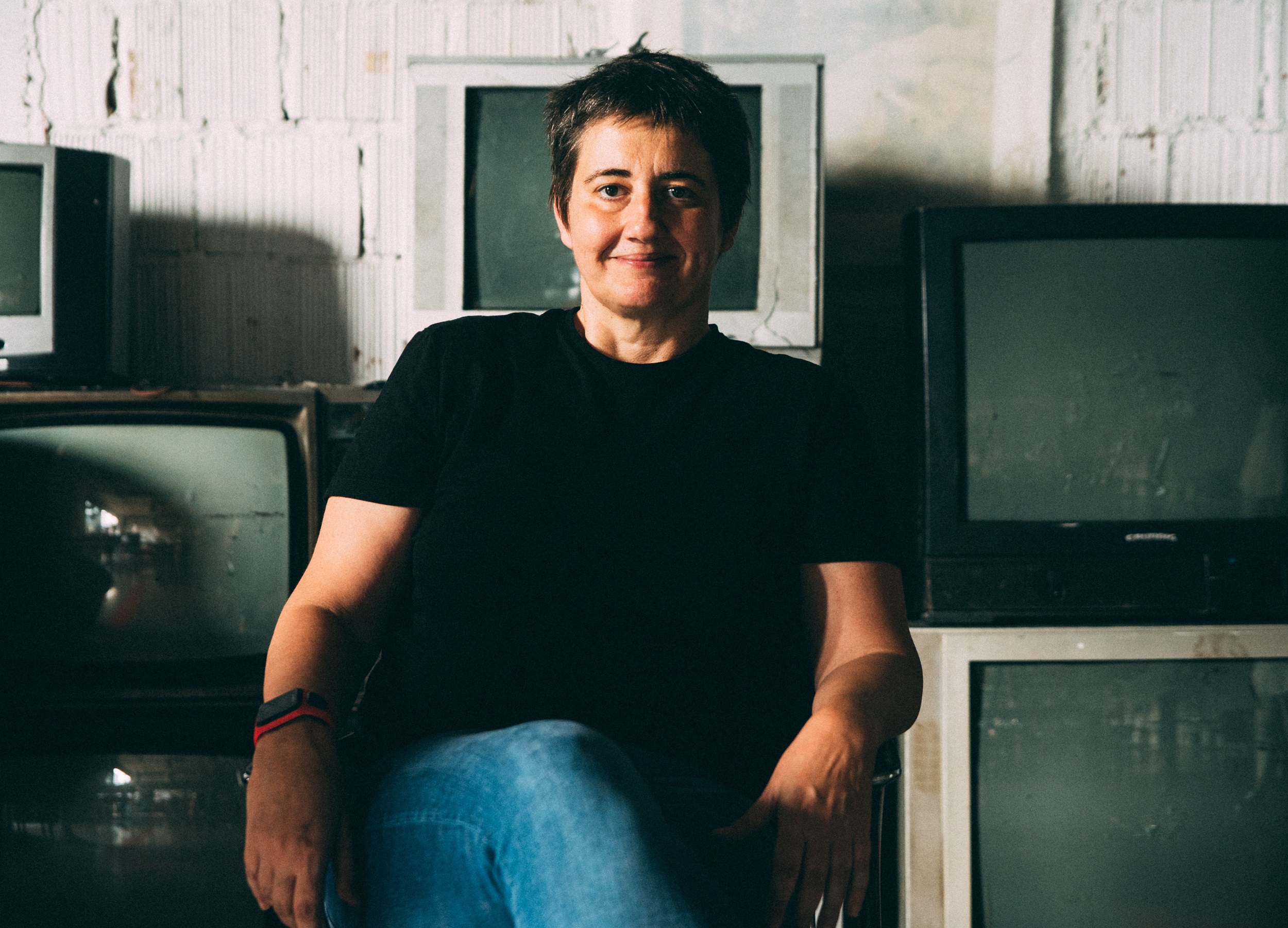Hotline: +381 61 63 84 071
Victims must be trusted and supported

Marijana Savić, “Heroine in the Fight Against Human Trafficking” Award winner
Victims must be trusted and supported
Author: Miroslava Derikonjić
Photograph: Marija Piroški
More than half of the identified victims of human trafficking in Serbia (62%) are children, most of whom were forced into begging and committing crimes, sexual exploitation, and forced marriages, says Marijana Savić, director of the NGO “Atina” and this year’s “Heroine in the Fight Against Human Trafficking” award winner given by the State Department. According to her, victims of sexual exploitation are primarily girls aged 13 to 18, although there have been cases where eleven-year-old girls were used for pornographic purposes.
What distinguishes you from other fighters against human trafficking, considering that you are one of ten people in the world to receive the State Department's recognition?
I received this international recognition for being a part of “Atina,” whose work stands out due to its comprehensive support and recovery program for human trafficking victims. The State Department recognised us as one of ten points in the world that excel in the fight against human trafficking. For over two decades, we have developed approaches to victims and expertise that are now recognised as best practices globally. So far, we have helped over a thousand women and their children formally identified in Serbia. We continuously improve, acknowledge our mistakes, and learn from them. We scrutinise our work and have never left a victim without support.
How do you help victims?
Our program includes many services—from housing and legal assistance to emotional and psychosocial support. We adapt our services to the real needs of women who have survived human trafficking. We unwaveringly stand behind the laws and regulations of Serbia and insist on their adherence by institutions. We are particularly proud of enabling human trafficking victims to actively participate in creating our programs. We encourage them to advocate for changes vital to them and ensure their voices are strong and respected. We collaborate with victims and colleagues from other institutions and organisations, jointly advocating for protecting and enhancing victims’ rights, warning against any inconsistencies in state bodies and legal violations. We provide support seven days a week. The Republic of Serbia’s budget does not fund us; this independence allows us to remain brave and principled.
What is good, and what should change in Serbia regarding the fight against human trafficking?
The fight against human trafficking in Serbia is a struggle against windmills. Our most significant challenges lie within the institutions themselves, which should be the citizens’ allies. Citizens are the most important; the government and institutions should be partners with them, not rulers over them. We face an inefficient system that often hinders our efforts due to a lack of transparency, adequate funding, and strategic planning. A serious issue is also the lack of willingness to involve human trafficking survivors in policy creation.
Moreover, an atmosphere where civil associations and citizens feel pressured not to criticise poor, ineffective practices and behaviours if they do not want to face threats is unacceptable. It is urgently necessary to reassess how our institutions approach this problem and the extent of their genuine will to effect change in this regard.
What did you discuss with U.S. Secretary of State Antony Blinken when receiving the award?
At the State Department, we discussed the challenges in the fight against human trafficking. We emphasised that inequality, poverty, and migration are deeply connected to this issue. The focus was on the need for intensive multisectoral cooperation, analysis of our approaches to this problem, and assessing their effectiveness.
We discussed the necessity for institutions to be accountable to citizens, their transparency in work, and the importance of political will for societal change. We highlighted the role of specialised civil society organisations that provide support to victims and the importance of involving survivors in the fight against human trafficking. We talked about the need for employment, housing, and education for human trafficking victims.
We critically examined the challenges in implementing regulations, human trafficking for labour exploitation, and the necessity of adequate prosecution. We discussed the state’s obligation to fund long-term support and protection programs from the Republic of Serbia’s budget, ensuring that money is spent on support programs for human trafficking victims and guaranteeing and protecting all their rights. In these conversations, I made it clear that the critical element is the political will of local leaders.
What needs to be done to improve the fight against human trafficking?
We must put more effort into identifying victims and believing them. Women often do not talk about the violence they have experienced, and children even less so. The harmful practice of reclassifying the criminal offence into mediation in prostitution must stop, as the prosecution in this way does great harm to the legal order, society, and all of us. As a result, women and children lose all their rights as victims, remain alone, merely as witnesses, without any support, and with heavy stigma. Secondly, the understanding of support must be comprehensive and last as long as necessary.
How would you rate the State Department's report on the fight against human trafficking in Serbia?
I regret that Serbia missed another opportunity. When the state meets the minimum conditions, we can talk about moving in the right direction where our women and children are safe from crimes. We have to have a responsible system that believes in citizens and cares for them, aiming to punish perpetrators and compensate victims adequately.
The interview was published on 01.07.2024 in daily newspapers Politika.












 FACEBOOK
FACEBOOK TWITTER
TWITTER YOUTUBE
YOUTUBE